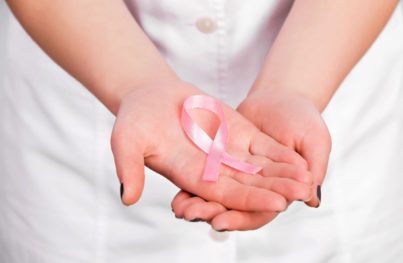A woman’s risk of dying of breast cancer has dropped 39 percent over the past 30 years due to increased awareness, earlier detection through screening, improved diagnostic modalities, a better understanding of the genetic basis of disease, and advances in treatment. And yet, despite substantial progress, breast cancer remains the second-leading cause of cancer death in women, second only to lung cancer. There are more than 3.1 million people with a history of breast cancer in the United States, and the American Cancer Society estimates that 266,120 new cases of invasive breast cancer will be diagnosed in 2018, and 40,920 women will die of the disease.
There are things all of us—male, female, old or young—can do to help ourselves and others prevent and manage breast cancer. And it starts with embracing and promoting a healthy lifestyle. There is so much in life that we have no control over, but we can control our lifestyle choices. Breast cancer prevention begins with healthy lifestyles.
What we know about breast cancer:
-
- On average, alcohol consumption increases the risk of breast cancer in women by 7 to 10 percent for each drink of alcohol consumed per day; women who have two to three alcoholic drinks per day have a 20 percent higher risk of breast cancer compared to non-drinkers.
- Being overweight increases the risk of postmenopausal breast cancer by about 1.5 times compared to that of lean women. Obesity doubles it.
- Women who get regular physical activity have a 10 to 25 percent lower risk of breast cancer compared to women who are inactive.
- Smoking may increase breast cancer risk, particularly long-term.
We all want to DO SOMETHING to help. We walk. We donate money. We volunteer. But it is by adopting healthy lifestyle choices that together we will not only succeed in reducing the risk of breast cancer but also that of other cancers. And, for cancer patients, healthy lifestyle choices promote healthy survivorship.

Let’s Do It!
Here are 9 things you can do to manage your breast cancer risk:
- Drink less. Limit alcohol to less than one drink per day.
- Don’t smoke. If you are not a smoker, don’t start. If you are, quit immediately.
- Control your weight. Consider the Mediterranean diet, which focuses mostly on plant-based foods, such as fruits and vegetables, whole grains, legumes, and nuts. Use healthy fats such as olive oil and canola oil instead of butter. Use herbs and spices instead of salt to flavor foods. Limit red meat to no more than a few times a month. I have personally been on this diet for over 25 years and feel great. (Note: The Mediterranean diet does not preclude me from eating occasional ice cream or popcorn. It is a lifestyle diet meant for the long-term.)
- Be physically active. You don’t have to run a marathon. Just make a point to get your body moving on a regular basis.
- Reduce stress. I suggest yoga, meditation, and breathing exercises to help you to manage stress.
- Avoid exposure to radiation and environmental pollution. Living a clean lifestyle includes paying attention to the environment around you.
- Limit dose and duration of hormone therapy. Undergoing combination hormone therapy for more than three to five years increases the risk of breast cancer.
- Breastfeed. Breastfeeding isn’t just good for your baby—it’s good for you, too. Lactation delays a woman’s menstrual cycle, and that delay means that women are exposed less to potential cancer-promoting hormones such as estrogen.
- Check yourself. Be vigilant about breast cancer detection. Do a monthly breast self-exam and get regular mammograms.
Julie Rosenberg, MD is a pediatric oncologist and global healthcare leader who has worked for nearly 25 years in service to patients with cancer. Through years of working with individuals with life-threatening and life-limiting disease, she has become passionate about helping people achieve optimal health, wellness and life-satisfaction. In addition to working as a pharmaceutical executive, Dr. Rosenberg is an executive coach who helps leaders develop themselves, their teams and embrace conscious living. Julie has devoted the last 16 years to the in-depth study and practice of yoga. Her work demonstrates that the millennia-old physical, mental, and spiritual discipline of yoga not only supports good health and wellbeing, but also helps to strengthen one’s personal and professional leadership skills. In 2017, Julie was selected from among 16,000 applicants by Number 1 Executive Coach and Leadership Thinker, Dr. Marshall Goldsmith, as one of the MG 100, a group of over 100 leading coaches, thinkers and senior business leaders, each of whom is committed to paying it forward. Her first book, Beyond the Mat has been called “transformative”, “insightful”, “practical”, “accessible”, “creative”, and more. It’s been featured as a top rated book on CAHI. She is a highly sought-after speaker, executive coach and committed patient advocate.

